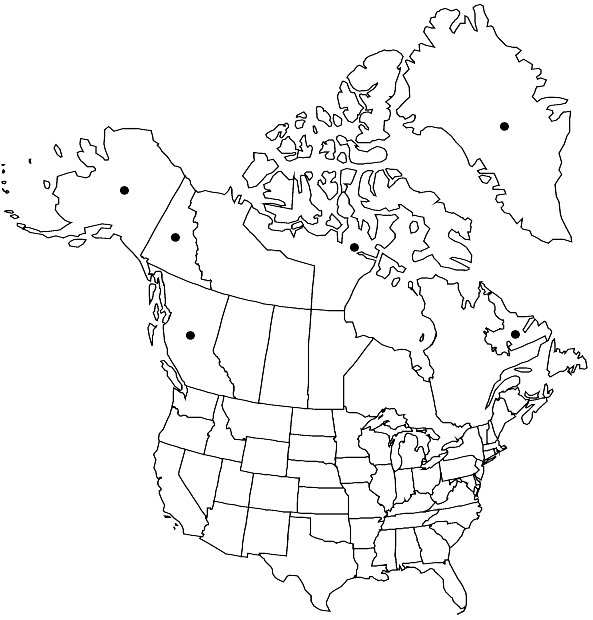Difference between revisions of "Andreaea obovata"
Nya Bot. Not. 1849: 78, plate 1, figs. 27–36. 1849,.
FNA>Volume Importer |
imported>Volume Importer |
||
| (2 intermediate revisions by 2 users not shown) | |||
| Line 43: | Line 43: | ||
|publication year= | |publication year= | ||
|special status= | |special status= | ||
| − | |source xml=https:// | + | |source xml=https://bitbucket.org/aafc-mbb/fna-data-curation/src/2e0870ddd59836b60bcf96646a41e87ea5a5943a/coarse_grained_fna_xml/V27/V27_115.xml |
|genus=Andreaea | |genus=Andreaea | ||
|species=Andreaea obovata | |species=Andreaea obovata | ||
Latest revision as of 21:24, 5 November 2020
Plants red-brown to purple-black. Leaves straight to secund, panduriform, widest in distal half, apex usually symmetric; costa absent; leaf margins entire; basal laminal cells rectangular to long-rectangular, marginal cells rectangular, walls thick, pitted-nodose; medial laminal cells quadrate, 1-stratose, lumens irregularly stellate to rhombic; laminal papillae low or absent. Sexual condition autoicous; perichaetial leaves differentiated, convolute-sheathing. Spores 20–35 µm.
Habitat: Rock or soil in streams
Elevation: low to moderate elevations
Distribution

Greenland, B.C., Nfld. and Labr. (Labr.), Nunavut, Yukon, Alaska, n Eurasia, c Africa.
Discussion
Like Andreaea alpina, A. obovata has spores in two size classes, the smaller apparently abortive. It is very rare in the flora area and can be distinguished from A. rupestris by the panduriform leaves.
Selected References
None.